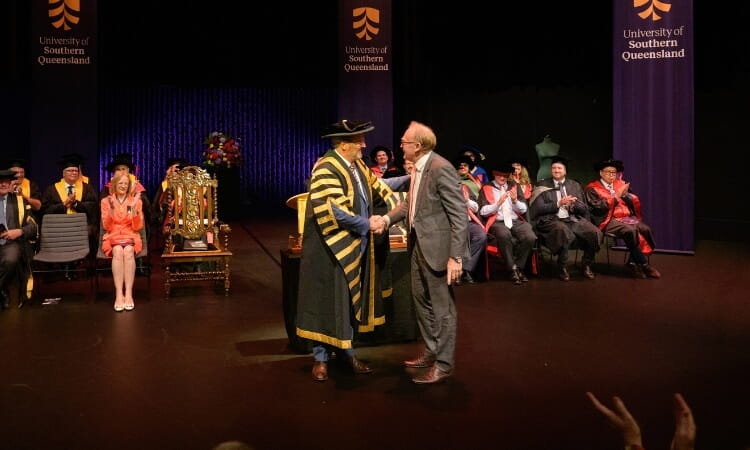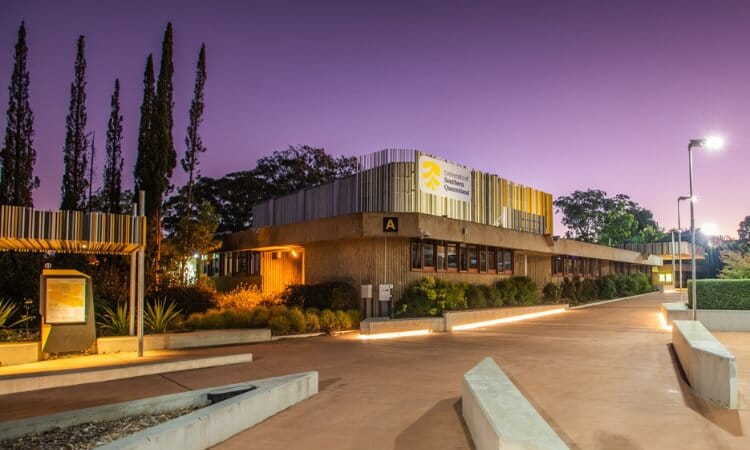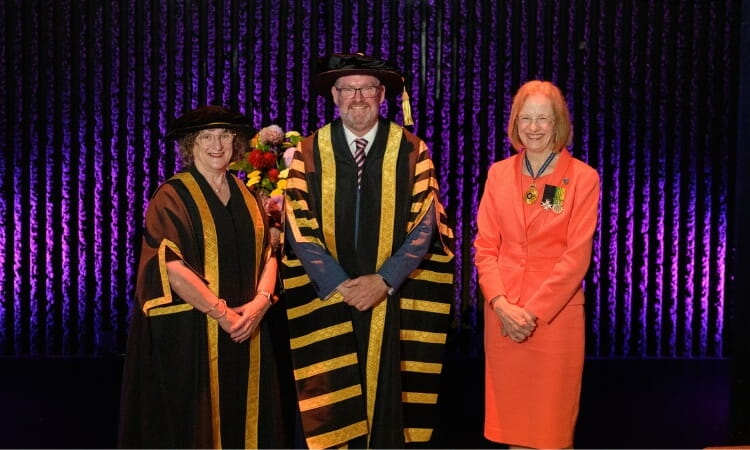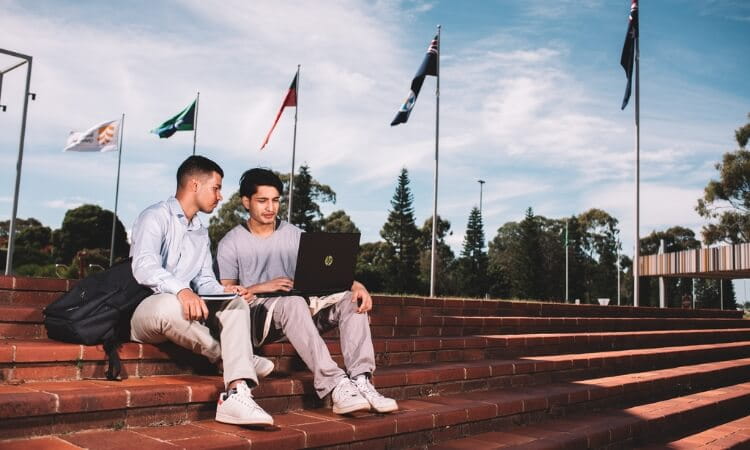Good morning.
First and foremost, I wish to acknowledge the Queensland Governor, Her Excellency the Honourable Dr Jeanette Young. Governor, it is a great honour for our university and my family that you have joined us today for this ceremony. Thank you for what you do and have done for our great state.
I acknowledge Senator the Honourable Anthony Chisholm, whom with other colleagues, I’ve had the pleasure of welcoming to the University on a number of occasions. Senator, your roles as a Queensland Senator and Assistant Minister for Education are very important to all of us – so too in mind are those of Assistant Minister for Regional Development and for Agriculture, Fisheries and Forestry – passions that I personally and our university share.
I am pleased to have Garth Hamilton MP Federal Member for Groom here today, together with Pat Weir State Member for Condamine, James Lister State Member for Southern Downs and former State Member Graham Healey and his wife Vanessa. We also have Mayors from Western Downs, Andrew Smith, Toowoomba, Geoff McDonald and Lockyer Valley, Tanya Milligan, as well as Cr Julia Spicer from Goondiwindi Regional Council and Cr Bill Cahill from Toowoomba. From Southern Downs, Goondiwindi, Western Downs, Toowoomba, Lockyer Valley right through to the Sinnathambys and the Springfield City Group, this display of regional support today from across our footprint is humbling indeed.
It is important for me to recognise all our friends but I’d just like to mention a few: Martin Daubney, Chancellor of ACU; Lyn Brazil, whose wife Bobbie was our third Chancellor; a member of a former governing body of this institution, Mr Lionel Davidson; Dr Brent Findlay with whom I and the University have done so much over the years; Emeritus Professor John Cole my predecessor in leading our Resilient Regions Institute; another former governing body member Phil Jauncey; our great family friend Bishop Bill Morris; and my colleague April Cavanagh, Chair of Toowoomba and Surat Basin Enterprise.
Thank you, Uncle Wayne Fossey, for your inspiring Acknowledgement of Country, and Acting Vice-Chancellor Professor Karen Nelson for your welcoming address.
I would also like to express my gratitude to the former Chancellor, Mr John Dornbusch, for his 25 years of dedicated service on the University Council, including 10 years as Chancellor.
John, you have been, and obviously always will be, an outstanding advocate and champion for our university. Under your guidance, the institution has evolved as an award-winning university and gained international recognition for its high academic standing, and you have positioned us well to deal with challenges and future opportunities.
This has been a lengthy list of thankyous, but please indulge me as I acknowledge our family. Anita and I are so touched to have our parents here today Cel, Tom and Mary – who was the real secret of me getting through my undergraduate degree, and as we always do, we remember my late father-in-law Kevin, a real champion of education in his hometown of Charters Towers, and Anita’s late Uncle Bishop Michael Putney. My brothers and I are immensely proud of our sister, Associate Professor Margaret McVeigh from Griffith University and she’s here on stage with me today. A shout out to our children and grandchildren and lastly of course, the one who inspires me most, my wife Anita.
I am proud and honoured to be stepping into the role of fifth Chancellor of the University of Southern Queensland.
I have a strong affiliation with the University of Southern Queensland as both an alumnus and the former Executive Director of the Institute for Resilient Regions and Director of the SQLD/NNSW Drought Innovation Hub.
As Australia’s highest ranking regional university, the University of Southern Queensland delivers education and research not just locally at our Springfield, Ipswich and Toowoomba campuses, but on the national and global stage.
Our Flagship areas of space and defence, agriculture, health, and regional development are of significant importance for our communities and our nation.
The University is committed to delivering inspiring learning opportunities, world-class research, outstanding student experience, and strong engagement with industry and community.
Some colleagues will be bored with me repeating my pride on what we do uniquely at UniSQ, but here I go again.
The Toowoomba second range crossing was completed just a few years ago and I was proud to learn our engineering students had been exposed to that project; I was proud that our staff were involved in cultural assessments of the project. I’m proud that our staff are thought leaders in local history, including previous range crossings such as various eras of creek crossings uncovered on East Creek here in Toowoomba and of course the time of Indigenous warrior Multuggerah after whom the new viaduct is named.
I recognise the supply chain research conducted by UniSQ staff, given the innovative development of road, air and rail freight corridors in our region. Whilst talking of multimodal facilities of the future, let’s not forget the multimodal freight facilities of the past: horse and dray; bullock teams loaded will wool sent to the freight consolidation and distribution facility that was the Toowoomba Railway yards enroute to initially Ipswich’s river freight facilities and latterly New Farm before sea shipment overseas. Our people are across the latest developments – our people are across the history.
I’m proud of our Bachelor of Nursing Programs at Toowoomba, Charleville and Ipswich – so relevant for our entire region. So too are our law and other professional studies programs relevant for our entire region. I’m proud of the leading-edge allied health programs and research out of Springfield and Ipswich – and our international leadership in adolescent mental health research. I’m proud of our social sciences engagement in heritage and youth futures at the likes of Swanbank, Ipswich, Laidley, Toowoomba, Warwick, and Oakey. I’m proud of our nation leading Space and Defence Research Trailblazer and of course our leadership in drought preparedness and resilience engagement, together with realistic approaches to the energy transition and decarbonisation in regional Queensland and our broad acre cropping and technology teaching and research programs that have so much potential.
The Australian Universities Accord Report released by the Federal Education Minister Jason Clare earlier this year addressed the theme of equity and innovation in our higher education system, and said, I quote “Australia is not meeting our current skills needs and will not meet them in the future unless we produce far greater numbers of higher education and VET graduates” – or if you like post school qualifications through TAFE’s, apprenticeship and other training pathways and of course Universities – with recommendations to grow and deliver an ambitious tertiary attainment target of 80% by 2050.
The University of Southern Queensland is uniquely positioned to contribute to the increased numbers of tertiary education graduates.
We collaborate locally with schools to build aspiration and provide education in the regions. We are committed to improving the participation of students from underrepresented groups such as mature age, first in family, First Nations, culturally and linguistically diverse cohorts and people from lower socio-economic backgrounds, and the gift of multiculturalism that UniSQ has brought to our region over the decades is now an underpinning feature of our community.
We have a strong record of partnering with local business and industry to contribute to the economic and social development of our region. We will continue to push the boundaries around how we deliver learning, teaching and research, and how we collaborate with our communities, business and government to build our workforce and strive to embrace the exciting opportunities we will face in the coming years – and we will continue to get better at doing it.
There are of course significant challenges across the university sector in Australia and globally – as representatives of other universities here today would attest. We at UniSQ are not alone, but each of our circumstances are unique, and we must all continually improve.
In line with the Universities Accord, I am a fierce advocate for education across the whole spectrum: early age, primary, secondary and of course vocational and tertiary. We must ensure our education offerings are in line with community and industry demands and our research focuses on the challenges that matter. Our sector is quite simply experiencing significant disruption; the UniSQ or DDIAE that I studied at 40 years ago is different to that my children have studied through in recent years, and it will be different again next year and into the next decade.
The perfect storm that has been COVID, geopolitical and societal influences, economic conditions and government policy evolution is not going away any time soon it seems. We could say that some or much of this is out of our immediate control, but how we respond to these conditions of course, is absolutely in our control.
Change is complex, it’s challenging but it can and must provide us with a renewed platform for the future. Amidst necessary policy debate and process and among all of the factors and influences; it is people that must be at the centre: in our case students and staff.
Now, I don’t have all the answers and indeed I’ll be Chairing my first Council meeting this afternoon. But I do know if any institution can deal with and respond to ambiguity, shifting goal posts, uncertainty, it’s the University. As Chancellor, I vow to lead an inquiring, responsive and robust council that will work with and, at the same time challenge, University leadership to continue to evolve our mission; continue to develop our strategies, including curricula, research programs and work force planning; to focus on our sustainability; and to clearly and openly consult and communicate throughout.
I’m cognisant of the challenges; I’m excited by the prospects; I’m greatly humbled by this opportunity; and I’m absolutely committed the University of Southern Queensland – now and into the future.
Thank you, ladies and gentlemen; thank you for your support.



